- Home
- Chris Wraight
Two Metaphysical Blades
Two Metaphysical Blades Read online
Contents
Cover
Two Metaphysical Blades – Chris Wraight
About the Author
An Extract from ‘Wolfsbane’
A Black Library Publication
eBook license
Two Metaphysical Blades
Chris Wraight
It is a forge, buried deep under the Earth’s tortured skin and lit, blood-like, with an upwelling and ancient flame. Chasms criss-cross the naked rock floor; narrow shafts angle down onto an old and angry heart. Engines belch, straddling the abyss on stone-cut piers, beating their iron hearts and churning the runnels of molten metal amid bounce-fountains of sparks.
Mortal souls labour amid those machines, their faces hidden, their hands shrouded in steel bands. They bear the icon of the Sigillites on robes of scorched forest-green, and say nothing, for their service and their tasking require only mute diligence. The sounds of the deep are the roar of loosed flames, the dull strike of rotating hammers, the grind of conveyers piled high with ore.
This is before the Imperium has been conceived. The void beyond Terra’s ignorant shores seethes still with living nightmares, and mankind’s dregs cower in their scratched-out fortresses, dreading the night. Only here, lost to the sight of both human and inhuman, warded by perennial ritual, does the flicker-light of rebirth catch and linger.
This is His first citadel. It has no name that any now remember, but it is the first all the same, and perhaps even now, in His agonised present dreams, He recalls its founding, its productive life and, in due time, its razing.
In the centre of that place, surrounded by a pentangle within a circle within an octagon, is a lone anvil. It is black, hewn from imperishable stone. Nothing reflects from it – light is swallowed by it, drunk up, gobble-smothered. A ring of columns rises up at the perimeter, disappearing slowly into the smog-smoked heights. There are twenty of them, and they are marked with arcane symbols, hard to pick out in the shifting light of the embers. Smoke is everywhere, hissing and sliding through the darkness, making it hard to see who is there and who is not. At times it seems as if many figures gather around that anvil, at times none at all.
A robed figure makes his way across the unfinished floor. His gait is smooth, his bearing erect, though that too will not last forever. This is Malcador in earlier days, before the many scars and the many wounds come. His cowl is thrown back, and his exposed skin is taut. Unlike the shadows in the smoke, he is distinct, hard-edged. It feels like he has been here for a long time, subterranean and patient.
He looks up to where a suspensor field glitters. Rotating within that field are two long spears, each one crusted with power mechanisms and energy lines. Both are huge items, far too big to be wielded by any unenhanced human hand, and so they are a portent of things to come. They are a promise, those spears, twin slivers of fate to be thrown onto a turbulent sea.
Malcador looks at them for a long time, studying every line and balance point. They are spiteful instruments, glimmering with a thirst for killing. Even isolated from a guiding hand, they look eager to slay and capable of it.
‘Do you have names?’ Malcador asks, in a voice that is not yet scoured by the age and cynicism that will come.
‘Two matched blades,’ comes a reply from the smoke, refracted and reflected, its origin uncertain. ‘Two principles. Intoxication and restraint, flux and stasis. The Dionysian and the Apollonian.’
Malcador snorts. ‘Old gods,’ he says, ‘for a godless world.’
‘It will not stay godless forever.’
‘Perhaps.’
The Sigillite looks more closely, raising a slender grey hand up to where the hilts twist. ‘You’ll bear them yourself,’ he says.
‘For a while. But they won’t stay with me.’
‘Who, then?’
The smoke shakes as a chuckle wavers through it. It is odd, to hear mirth from those lips. One day, they too will be silent, held rigid in an eternal howl of agony, but for now they can still laugh.
‘Opposites,’ says the figure in the smoke, lifting a hammer over the anvil, returning to His work. ‘In some ways.’
Another place, though still on Terra, and still before the Imperium has yet to be fully born. Rad-stained wastes are the haunt of bloody tyrants, and the polluted skies crackle with ill-directed, barbarian energies. Even the Thunder Warriors are new, all but untested, their armour clinging imperfectly to vat-grown muscles.
These are desperate days. An organism is most vulnerable in its infancy, and for all the long gestation of planning, this thing is still capable of being snuffed out. So few warriors stand between the chem-addled hordes and the sanctified heart of hope, each one painstakingly created to be the eternal guardians of what must come.
Was he the very first? Or merely the greatest of those who survived from the early batches? He may not know the answer himself, and is not inclined to investigate, for Constantin Valdor is not a curious man. Indeed, he is not a man at all, at least by the normal measure – he has been stretched, scraped-out, threaded-through and disembowelled before being put back together into a greater form, one that looms darkly over those half-empty lands. He has gazed over so many of them by this point, bringing vengeance with him for ancient and half-remembered defaults. His austere mien remains impassive as walls are broken and vaults uncovered. He elicits no joy as the damned are given their reward and the innocent are released into service with this new dispensation. These are not things that mean very much to him.
His armour is new. In the earliest of days he wore what could be fashioned for him, but as martial strength has grown, so has capability. He wears the Gold now, shaped around his body like a lover’s embrace, as tight to his sinews as his own skin. It is believed by those who know of the balance of powers, those of the past and the future, that no more than a handful of souls shall ever be capable of matching Constantin Valdor when wearing that armour, for in him is the past and present combined, ground down towards a singularity of perfection, though he himself can never recognise it, for he notices only flaws.
Ahead of him, dry winds skate across baking salt pans. The skies are dirty, scored with drifting contrail-smuts. An army shambles towards him, carried to war on the back of leaking half-tracks and war-trucks. Dozens of banners flare and snap in the briny winds, giving away a score of fiefs and allegiances, none of which are destined to survive the day. They are already firing, ploughing up the ground with pintle-mounted stubbers and projectile cannons.
Valdor remains static. His way of war is first to study, to gauge, to assess, and only then to act. It makes him look passive, but that is just another chimera. He is more active than the hundreds who are charging at him, just not physically.
He is accompanied by twenty of his order. Like him, they are arrayed in the new auramite shells, and their high helms flash and dazzle in the salt-glare. Like him, they do not move. A thin infantry line, a meagre slip, facing down a galloping herd of mechanical fury. They wait, and they wait, and they wait.
When they move at last, it is impossible to judge just when the shift took place. By the time you are aware that they are no longer static, they are already far into their second or third strike, and in all likelihood you are already dead.
Valdor is the forefront, leading the rest in this geometrical dance of slaughter, that, if properly understood, also has its ritual dimension. All his kills were chosen in those silent seconds before impact, and now he merely executes the pattern. A half-track is driven straight at him, blooming with exhaust gas and blazing from a rank of chain guns, and it seems briefly as if it must run him down, but then he is carving his way stra
ight through it with broad sweeps of a weapon that has a flying corona of gold-silver. The severed axles fly apart, and the armour plates spin and spiral. When he reaches the engine unit he provokes an explosion that devours the entire reeling structure, through which he strides unharmed, the flames clinging to him like regretful caresses.
The surviving enemy leap from their mounts to fight him, drawn like hornets to sugar and made fearless by their cocktails of battle narcotics. He barely notices them as the spear swats, swipes, bats and juts. He is searching for a single soul, the master of this motley insult to the Emperor’s vision, and the quest does not take him long to complete.
There is no precise telling what this person has done to her flesh to make herself this powerful. She is taller than she ought to be, broader and swaddled with stimm-bulked muscle. Her spine is a web of nutrient tubes, her lower jaws a griddle of bloody mandibles. Scatter-fields make her boxy outline blur when she moves, and a vox scream accompanies every gesture. An inky skull has been slapped onto her rusted breastplate, which may be her own emblem, or that of her clan, or may be allegiance to some more esoteric power, but that matters little, for it is all destined to be destroyed.
She scrabbles at Valdor like some metal-pinned arachnid, the vox scream ramping to ear-bursting volume. Each of her arms terminates in a whirling circular saw, jabbing and hacking in jerky spasms.
For an instant, Valdor hesitates. This slice of time is not perceptible to the one he will kill, nor to her minions, nor even, perhaps, to his own troops. He hesitates because his spear is illuminating him. Amid the motion and the counter-motion, its point is held still, and in that second you might think that everything in creation revolves around it.
Then he moves it, lashing the blade in close, shattering the skull-plate and slicing up all that stimm-bulked gristle. As edge meets flesh, his mind floods with revelations, truths, prophecies, interpretations. He knows her name as it was given to her – Rebaka Sova Kache – and sees her birth and her childhood, and the abuse she has suffered and the choices she has made, and how she had to embrace violence else become its victim, and how her soul has slowly withered amid atrocity until she is now the monster she once feared and there is no fate left to her but extinction.
Then she is dead, the skein of her soul cut short amid a flail of blood, and the visions snap into nothing. The spear only tells the truth, and only when the strike is made and completed. Its words are those of failures and compromises, and the bearer is reminded of mortality and its endless disappointments.
More killing follows, fluent and pitiless, until the vehicles are smouldering amid blackened salt and the remaining tech-warriors are pleading for a clemency that has no place on this kind of battlefield.
Valdor walks away from the smoke, letting his companions finish their work. As he does, he senses the voice of his master in his mind, as so often occurs once a task has been completed.
You understand the weapon now,+ the voice transmits.
It uncovers truths,+ Valdor sends back.
It seeks imperfection.+
You gave it to me. It would be more powerful yet still wielded by Your hand.+
Something like a soft laugh, though already colder than it used to be. +It does not magnify your power, Constantin. It checks it. Killing has been made easy for you, so it will do you good to be reminded of the soul-stories of your victims before you end them.+
Valdor pauses, digesting this. He has never been able to contest any injunction from his master, and is perfectly aware of why that is. +You told me there were two such blades.+
I did.+
Where is the other one?+
But there is no answer given. Valdor feels the withdrawal of that colossal mind, and then there is just the dust-veiled sun, the acrid flame and the last cries of the dying.
Another place, unimaginably far away in space and time, though also consumed by flame. The Wheel of Fire, they will call it later, making awed reference to the inferno of its unquiet void – whole worlds lost in crimson plumes of shifting ire, the stars shimmering behind system-straddling heat sinks.
Only the greenskins could have prospered here, drawing in their nigh infinite endurance and pig-headed refusal to appreciate sensible odds. They saw the leaping flames and laughed at them. They bred, spawning in pits a hundred kilometres across and bursting from their sacs ready to wield a weapon. For years uncounted they infested the Wheel, crawling from shimmer-world to shimmer-world in a black-edged tide of unreason.
And then it became the testing ground for a new Legion, the crucible into which the VI were hurled. So this is another kind of forge, a place in which impurities can be excised by conflict. As part of the Galactic Crusade that now carries war from the old poisoned valleys of Terra and into the pristine void, the Wolves that Stalk the Stars fall upon those teeming plateaus and valleys, and for the first time the xenos know ferocity greater than their own.
Five years of grind follow, in which a third of the Legion is lost. That is a high price, even in such times, when so much is uncertain and more than one Legion will come close to total annihilation from one source or another. Such fidelity requires compensation – the exchange of gifts from king to jarl, as ancient a Fenrisian tradition as any, and understood by all who witness it.
All, that is, save one. The captain-general of the Legio Custodes has no appreciation for gifts and rewards, since his entire essence is service, unrewarded and without tradeable value. He looks out on the victory ceremony with some humility. The Lord Russ has been gifted a citadel, one greater than any his peers will get, and that seems destined to store up trouble in the future. More than that, given the losses that he has been willing to suffer to fulfil the Emperor’s command, he has been given a weapon.
Valdor watches as the Wolf King takes up the spear, and witnesses his uncertainty. Russ nearly pulls a claw-like hand back from the haft, as if stung, before grasping it too tight, out of what is, presumably, bravado.
Much later, the two of them run into one another. The sounds of carousing and brawling ring through the camp, and Russ himself has a chin glassy with spilled refreshment. He is no longer carrying the blade.
‘Constantin!’ Russ roars, clapping his hand on Valdor’s shoulder. ‘I’m guessing you won’t be having a drink.’
Valdor smiles dryly. ‘All the more for you,’ he says. ‘Have you borne it, yet? Into combat?’
Russ’s face instantly contorts into a scowl. ‘Blood and tooth,’ he mutters. ‘You’d spoil a jarl’s wedding night.’
‘Be wary of it. I say this as a friend.’
Russ looks at him, a little blearily. ‘Combat’s over. I’ve got my own sword.’ He spits on the ground. ‘He only did it to make Ferrus envious. Have you spoken much to Ferrus yet? You two might find some common ground.’
Valdor watches the primarch carefully. There is the familiar bluster there, but also something more deep-seated. The antipathy is unfeigned – Russ hates this weapon. Russ also hates Valdor, or at least what he represents, which is a pity, because Valdor, to the extent that such things make any kind of sense to him, quite likes the Wolf King.
‘They were twins, our weapons,’ Valdor says, a few final words before Russ will swagger off into the firelit dark. ‘Both impart truths. I do not know what yours are. Mine are… hard to bear.’
Russ looks at him for a moment, his open mouth glistening, his icy blue eyes red-rimmed. ‘I don’t plan on using it,’ he says, eventually. ‘I don’t even plan on keeping it. You can stow your fate-weapons and your wyrd-wound swords – I’d rather use my bare fists than that thing.’
‘But listen to what it tells you,’ Valdor warns, for Russ is already beginning to sway off, back to where the drinks are flowing.
‘I’ve got my own jarls for that,’ Russ slurs.
‘For now,’ Valdor says, this time under his breath.
And then time sp
eeds up, as if stirred into reckless impatience, and it all begins to rush towards the greatest inferno of them all. War becomes less a matter of isolated engagements than a trundling magma curtain that sweeps across the entire galaxy. At first this is the Imperium in its pomp, driving all before it with its armies of gene-swollen super-soldiers, an unstoppable force meeting a set of eminently moveable objects.
In those days, the Apollonian Spear is wielded openly, its name spoken of with growing reverence. Valdor becomes a totem, one of the coterie who surround the Emperor like a choir of seraphim. If this is a little too close to the religion that everyone is supposed to be stamping out, then that is a small price to pay for such continual and dazzling success – let the worlds fall, one by one, and afterwards the details of dogma can be worked out.
Russ, too, does his part, though this is much less celebrated and much more feared. His Legion become a surly pack of attack dogs, taking on the dirty and the difficult and getting little praise for it. They do not mind, much. They are as self-contained as any in the service of Crusade, and have no share in the obsessive regard for recognition that, say, a Fulgrim or a Lorgar might demand. But they do not forget.
During this time, the second blade is never unfurled. Its old name is forgotten, and only in the Palace does Malcador mutter gnomically about the Dionysian Spear and its fate. It is unclear whether Russ ever knew the name. If so, he never uses it, preferring to categorise it as one of the many things that are ‘of the Emperor’, as a counterpoint to those things that are ‘of the Rout’, in which the comparison is not intended necessarily to be favourable.
Nevertheless, some weapons are not destined to remain behind the arras forever, and on the swamp-hell of Davin’s moon another fulcrum blade is unfurled, and driven into the shoulder of the greatest of mortal warriors, setting in motion the catalogue of errors and infamy that will see the Imperium turn inward on itself like a serpent eating its own tail. If the Crusade has been a blood-edged tide of destruction thus far, nothing prepares for the brutality unleashed then. It is said that the Legiones Astartes never fought so hard but against their own kind, something that countless systems come to rue as the fetters are loosed and the hounds of dislocation are set free to gnaw on the shattered bones of their brothers.

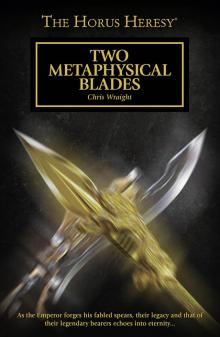 Two Metaphysical Blades
Two Metaphysical Blades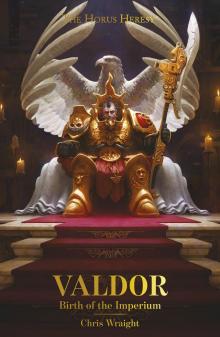 Valdor: Birth of the Imperium
Valdor: Birth of the Imperium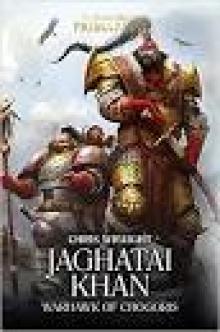 JAGHATAI KHAN WARHAWK OF CHOGORIS
JAGHATAI KHAN WARHAWK OF CHOGORIS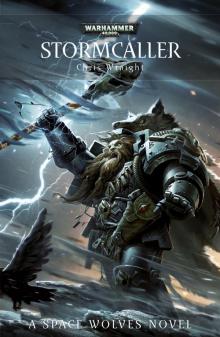 Stormcaller
Stormcaller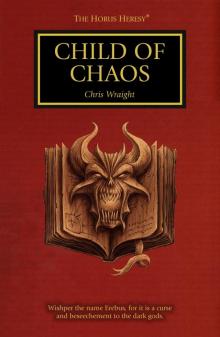 Child of Chaos
Child of Chaos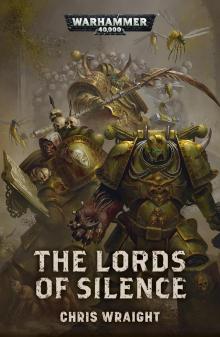 The Lords of Silence
The Lords of Silence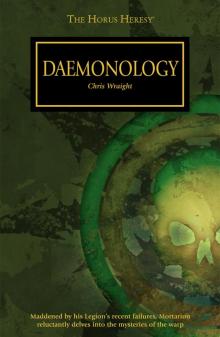 Daemonology
Daemonology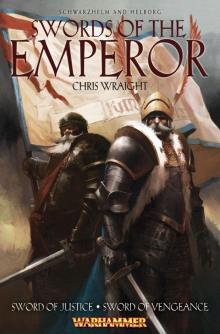 Swords of the Emperor
Swords of the Emperor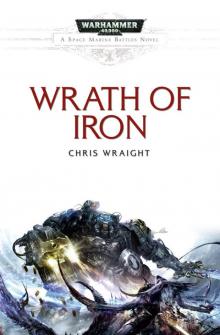 Wrath of Iron
Wrath of Iron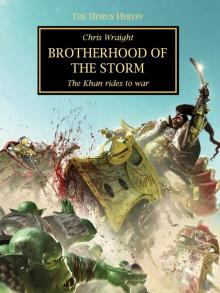 Brothers of the Storm
Brothers of the Storm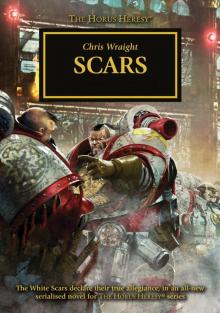 Horus Heresy: Scars
Horus Heresy: Scars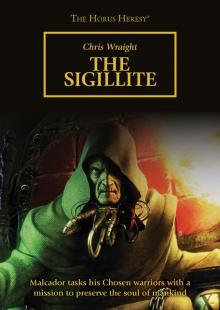 The Sigillite
The Sigillite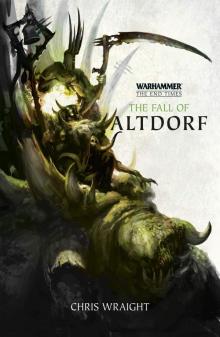 The End Times | The Fall of Altdorf
The End Times | The Fall of Altdorf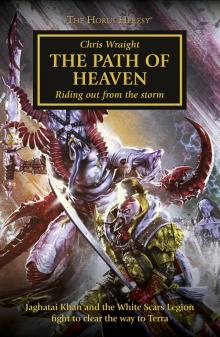 The Path of Heaven
The Path of Heaven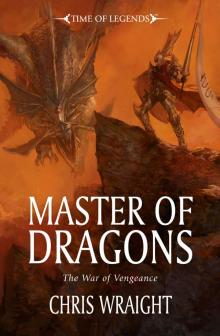 Master of Dragons
Master of Dragons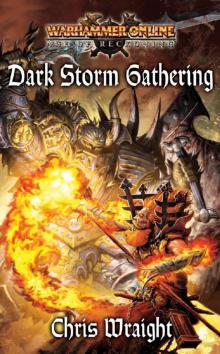 WH-Warhammer Online-Age of Reckoning 02(R)-Dark Storm Gathering
WH-Warhammer Online-Age of Reckoning 02(R)-Dark Storm Gathering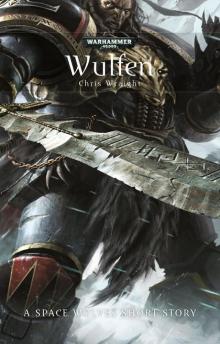 Wulfen
Wulfen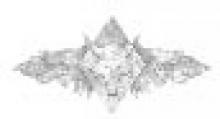 Battle Of The Fang
Battle Of The Fang Onyx
Onyx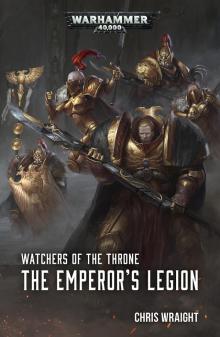 Watchers of the Throne: The Emperor’s Legion
Watchers of the Throne: The Emperor’s Legion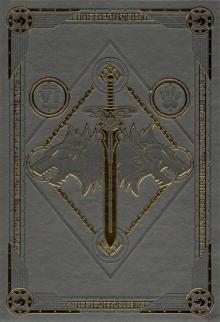 Leman Russ: The Great Wolf
Leman Russ: The Great Wolf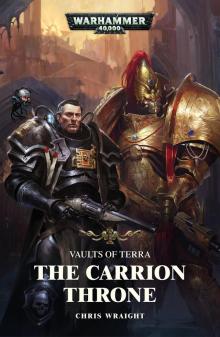 Vaults of Terra: The Carrion Throne
Vaults of Terra: The Carrion Throne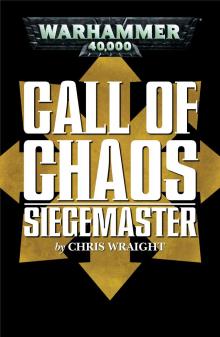 Siegemaster
Siegemaster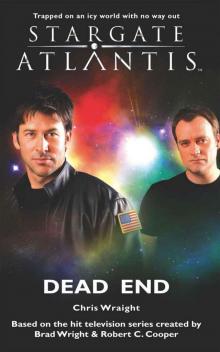 STARGATE ATLANTIS: Dead End
STARGATE ATLANTIS: Dead End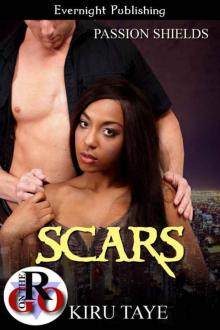 Scars
Scars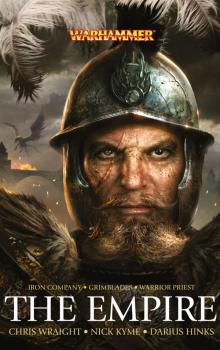 The Empire Omnibus
The Empire Omnibus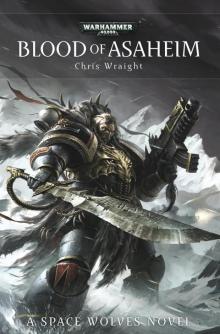 Blood of Asaheim
Blood of Asaheim